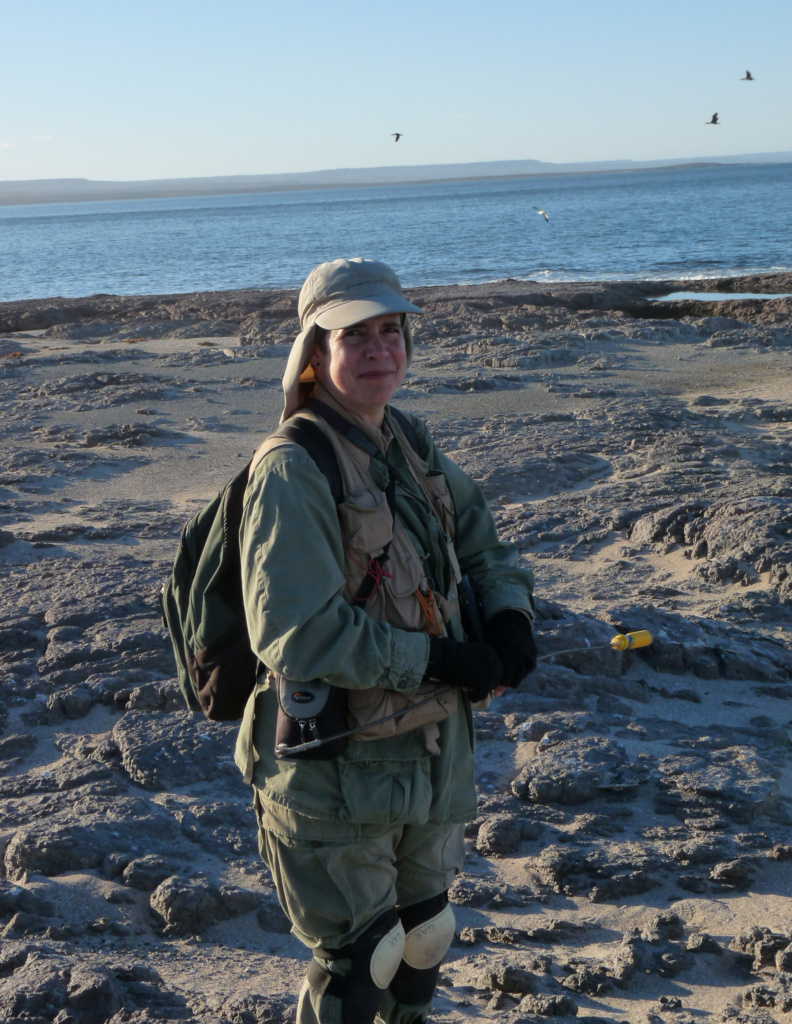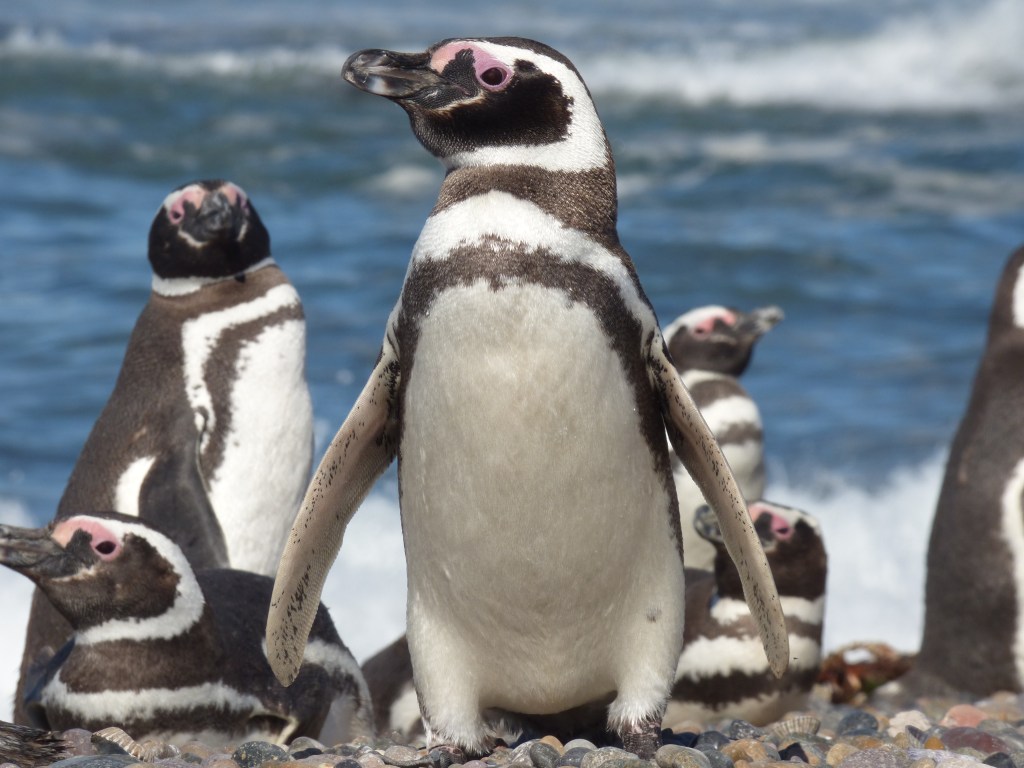Dr. Ginger Rebstock
Research Scientist

ORCID: 0000-0003-2697-7058
I grew up on a beach in Texas, where I swam, sailed, fished, and observed marine animals every day, so it’s only natural that I ended up studying oceanography. I received a Ph.D. in biological oceanography from Scripps Institution of Oceanography in 2001, where I was an EPA STAR (Science To Achieve Results) graduate fellow. After a few more months in San Diego working weekends at a breeding colony of Least Terns and Snowy Plovers, and studying fish larvae for a day job, I joined The Magellanic Penguin Project (now part of the Center for Ecosystem Sentinels) in September 2001 and went to Punta Tombo, Argentina for the first time.
I spend 1-2 months per year at Punta Tombo. In most years, I go at the beginning of the season to train the new field crew. After so many years, I’m still eager to see what is different each new season compared to the last season. The rest of the year I spend in Seattle, analyzing data and writing papers, helping students with their projects, and working on the myriad of tasks required to run a large project.
Interests
My research interests include any and all aspects of penguin biology, as well as the effects of climate on marine populations, how seabirds interact with their oceanic environment, and conservation of seabirds.
I have studied marine animals as diverse as zooplankton, fish larvae, and seabirds, the common thread being long (20-50 year) records of populations. These long records are rare, and I was drawn to The Magellanic Penguin Project by the 20-year dataset the project had generated (now over 30 years). I enjoy the challenge that analyzing long datasets presents, as well as field work with penguins in remote Patagonia.
Penguins spend only part of their lives on land, where they are easily studied. They spend much of their lives at sea, both during the winter when they seldom come ashore, and during the breeding season when they make foraging trips lasting a few hours to a few weeks. As an oceanographer, I’m especially interested in this part of penguins’ lives. We track penguins at sea using satellite transmitters and GPS tags, and we have published several papers showing where Magellanic Penguins go at sea during the breeding season, and looking at patterns of ocean productivity and temperature that explain why penguins forage where they do. This information will be used to help prevent conflicts between human and penguin uses of the ocean.
Recent publications
See a full list of Dr. Rebstock’s publications here.
-
A fearful scourge to the penguin colonies: Southern giant petrel (Macronectes giganteus) predation on living Magellanic penguins (Spheniscus magellanicus) may be more common than assumed
-
Sex-specific migratory behavior in a marine predator results in higher risks to females
-
Climate presses and pulses mediate the decline of a migratory predator
-
Site fidelity increases reproductive success by increasing foraging efficiency in a marine predator
